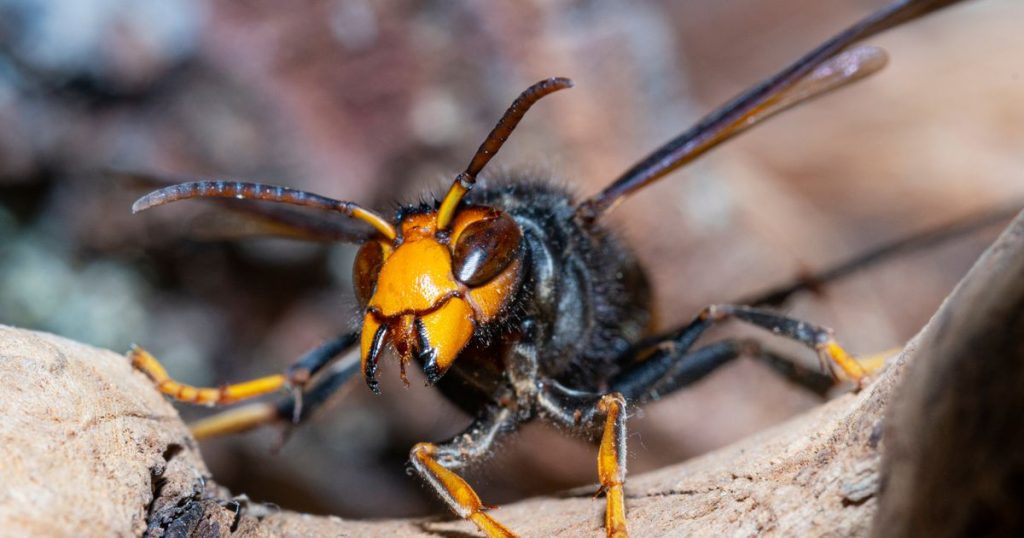Conservation groups are warning the public to be vigilant and report any sightings of Asian hornets due to a surge in their numbers. An interactive map tool has been created to display reported sightings and nests that have been destroyed. The Asian hornets pose a threat to the environment and can cause severe allergic reactions in humans. Last year, there were a record number of sightings and nests destroyed, indicating a growing population of the invasive species. Concerns have been raised that missed nests from last year could lead to more fertile queens starting new nests this year. The chief plant health officer is encouraging beekeepers and the public to report any sightings to help curb the threat posed by Asian hornets.
The Asian hornets can significantly impact honey bee colonies, with one hornet capable of devouring up to 50 bees at a time. A single nest can produce hundreds of potential queens and workers, leading to a rapid increase in population if left unchecked. Despite the efforts to destroy nests in the UK, the sightings of Asian hornets have significantly increased since they were first spotted in Gloucestershire in 2016. The distinctive appearance of the hornets, with a dark body, wide orange stripe, and yellow leg ends, makes them easily identifiable. Conservation groups stress the importance of early trapping and reporting to prevent the establishment of the species in the UK and protect pollinators from harm.
Last year, Kent had the highest number of Asian hornet sightings, with reports also coming from various other regions in the UK. The Environment Department highlighted that the hornets are not yet established in the UK and early intervention is crucial to keeping them out. The public is urged to be on the lookout for Asian hornets and report any sightings using the designated app or online platform. While the hornets do not pose a greater risk to human health compared to other insects, they can cause significant damage to honey bee populations. The collaboration between conservation groups, beekeepers, and the public is essential to effectively identify and eliminate Asian hornets to protect the ecosystem.
Efforts to control the Asian hornet population have intensified as early sightings indicate a potential breeding season for the species. The fertile queens, known as “gynes”, can establish new nests, further expanding the number of hornets in the UK. Environmental experts emphasize that early detection and reporting can help prevent the long-lasting impact of Asian hornets on native pollinators. The hornets’ predatory behavior and rapid reproduction cycle necessitate proactive measures to safeguard vulnerable bee colonies and ecosystems. By actively monitoring and reporting Asian hornet sightings, the public can play a vital role in supporting conservation efforts and protecting the biodiversity of the UK.
Asian hornets represent a significant threat to honey bee populations and other pollinators, highlighting the importance of early detection and intervention. The potential harm that these invasive species can cause to ecosystems underscores the need for swift action by conservation groups and the public. By staying vigilant and reporting any sightings of Asian hornets, individuals can contribute to the protection of native pollinators and support ongoing efforts to control the spread of the species. The collaborative efforts of beekeepers, conservation organizations, and the wider public are crucial in combating the environmental risks posed by Asian hornets and preserving the natural habitats of the UK.


